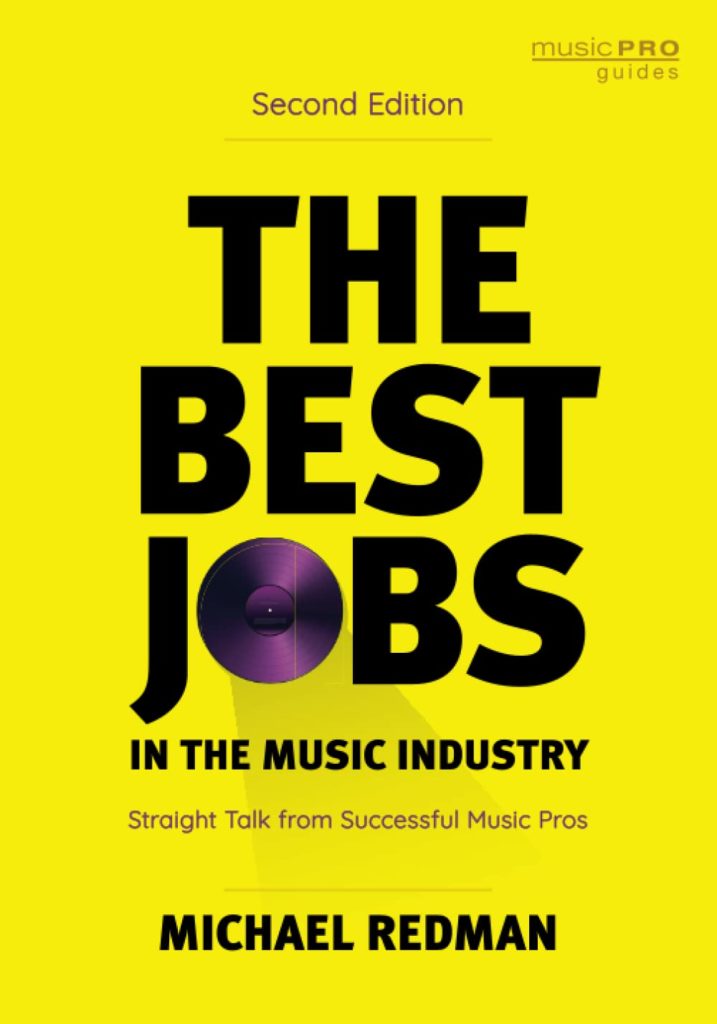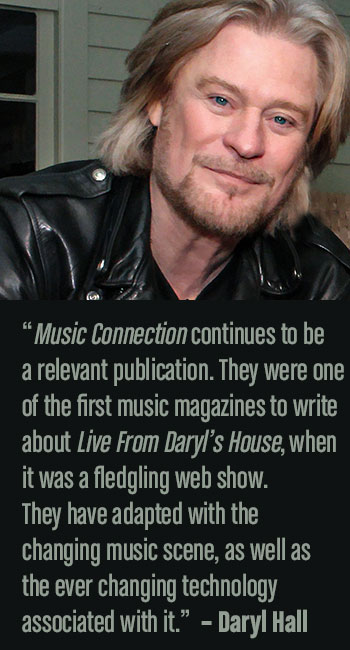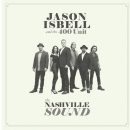When Music Connection asked me to contribute my thoughts about music composing for Film and TV, I was flattered. I thought the best way I could add value is to include excerpts from the second edition of my latest book, The Best Jobs in the Music Industry, which is published by Rowman & Littlefield and recently released on all platforms.

Over the past nine years I’ve interviewed well over 1,500 successful industry people and have taken some of the best interviews to write books about jobs in the Music, Audio, and Film business. Below are a few edited questions/answers from a select few of these people. People who have lived, worked, and been successful in our industry; well worth the read. Enjoy!
THE COMPOSER’S WORLD
Skill Set—A formal education is helpful for most types of composing. You may be able to write for a TV series without a formal degree, but if you’re really serious about a job composing, you might want to learn to read music. I would also recommend at least some basic arranging and orchestration classes, or you may severely limit your potential. The ability to write lyrics is also helpful; software skills are a must, as is an understanding of your style limitations and social skills. And, yes, you should be a highly creative, prolific composer.
Hours: This job can require long hours because of project deadlines and, in the early stages of your career, is not the best for raising a family. You are often the last person in the food chain who is working on a project, and everybody is waiting on you…
Upside: You are usually the master of your own universe—sort of. You usually get to work your own hours, even if they are long, and composing is personally rewarding as a musician, almost as much fun as having an applauding audience …
Downside: Composing is not a team sport from the perspective of the actual art of composing. You’ll spend a lot of time with just yourself and your music (this could be an upside). It can be a chore, however, being highly creative on demand and on an ongoing basis. You may lose touch with reality. If you are successful, there’s little time to sit back and smell the roses (or even enjoy listening to your music).
Also, as this is a great job, the competition is crazy, and the business can be hard to break into.
Financial: $$ to $$$$: This is totally dependent on your personal success. The composing arena has so many levels and positions that it’s hard to nail down a number, but let’s say in the top echelon composers get paid around $1.5 million a film with a very long tail. Original advertising music can range from $5 to $30,000 per track, and corporate work varies.
Location: Remote anywhere or Chicago, L.A., N.Y.C, Minneapolis, Austin, Nashville, and Montreal, Canada. You can live and compose music in many places, but it also depends on the type of music and industry segment. You probably don’t want to live in Austin and try to write film scores (at least until you can afford two homes)…
Future: Looking good for a long, long time. More visual media is being created than ever, but develop a solid plan if you want to make it work…
I WANT TO START THIS by telling you that I purposely interviewed more composers than any other job in The Best Jobs in the Music Industry, primarily because I know that so many of you aspire to compose music for a living. Without a doubt it is one of the most creative, challenging, and rewarding jobs in the music industry.
When I was actively composing, I was lucky enough to have a good run, and projects were coming at me left and right. Being raised outside of Washington, D.C., in a lower-middle-class neighborhood, I learned pretty quickly that when an opportunity presents itself you need to jump on it, so I said “Yes” to every call and every assignment. I did this without any consideration for the fact that I might not have the style or genre in my wheelhouse. I became comfortable being uncomfortable. Climbing the ladder for me meant putting myself on the firing line almost daily—“Yes, I can do that,” and then diving deep and learning as quickly as I could so I wouldn’t fail, or worse, be exposed.
The solution to the problem of too much work and my inexperience led to the obvious answer. Hire people who had the experience and manage the process. This is how I met Greg Sims. He is an amazing composer whom I’ve had the pleasure of watching grow into a successful film composer in Hollywood. We worked together for several years on projects for Disney and many other companies. Greg and his wife, the equally amazing Annie Sims, make their home in Knoxville, TN.
I asked Greg to answer some of the burning questions many of you might have.
How did you decide that making music for movies was what you wanted to do as your life’s work?
Greg Sims: I’m probably like a million other composers whose life was changed after watching Star Wars and hearing John Williams’ glorious score for the first time. The thought of creating music of that caliber lit me up, but, of course, being a kid when the movie came out, I had absolutely no idea how I could ever do it. I certainly can’t say that I’m on his level yet (is anyone?), but I continue to work toward it.
How did COVID affect your work?
Sims: The first thing was that all the films I was attached to were put on hold. But ironically, I got my next biggest break, the Tom and Jerry in New York cartoons Keith and I did for Warner Bros. Because they were animated, we all worked on our parts in our own spaces. These are the first Tom and Jerry cartoons that have songs with lyrics, and because of COVID we had my wife, Annie, and her bandmates sing on the demos. The Warner execs liked their vocals so much they kept them, which was a happy surprise!
How much time are you usually allotted to write a score for a feature?
Sims: It varies, but rarely no more than two to four weeks. Independent films don’t usually have hard deadlines like the major studios that already have a release date set, so they can be more flexible. I wrote the opening for 40 Years of Rocky eight times because Derek was not quite there with what I had written, which was okay because we weren’t in a time crunch.
What would be your best advice for an aspiring film composer?
Sims: First and foremost, you need to have a real passion for the job. If you don’t really love film music or composing, you won’t survive the chaos and volatility that lie ahead of you.
If you come to L.A., you need to have a lot of savings. Everybody is going after the gigs, even the tiny ones, and it’s very competitive.
ANOTHER COMPING FIELD that has experienced continuous growth is the gaming industry…
CHUCK CARR
Game Composer
Chuck Carr has numerous high-profile video game credits, including various NBA and MLB games, Twisted Metal games, and Gran Turismo 5.
How does composing and writing songs for games differ from writing for film, advertising, or even for the general commercial market?
Carr: Well, the biggest difference is that it’s not linear like film and television. With film, advertising, and TV, what you see and hear on-screen while scoring is how it’s going to be seen and heard when the public views it. There’s only one version. But with games, you may have many different outcomes that occur based on the player’s actions. Because of this, oftentimes interactive or adaptive music is used. Here, you can have various game scenarios play out while having music seamlessly move from one game state to another.
The majority of interactive games will have an ambient layer of music where there’s not a whole lot of action going on, a medium-action layer, and then there might be a fighting layer, which is very energetic. You have varying scenarios onscreen that pull you in and out of those layers for game interactivity. There are also some games, like racing games and sports titles, that usually don’t require interactivity, and it’s just a straight linear track that plays back.
Given that film scoring is different from game scoring, what are some of the things you should consider when writing game music?
Carr: My goal is to underscore what is happening on the screen, just like in film, but in games what is happening on the screen differs just about every time you play it. For example, let’s say I’m going to write music for a sports game front end, which is game production terminology for the menu music.
In most cases, it’s not desirable to have lyrics, because if you’re licensing a track, often times the lyrics will have language that doesn’t fit an E [everyone] rating. If you need to meet E-rating requirements, you’ll often need to edit out most of the lyrics. In that case, I would just decide to do instrumental hip-hop tracks…
How are composers for video games compensated?
Carr: Most of the deals are work-for-hire. This means they hire you to compose the music, and then they own it outright. But this also depends on how big the company is you’re working with. For instance, if it’s a start-up, they may offer you a royalty deal, which could end up being a nice payday or a freebie. I know Sony is good with helping composers keep their writer’s share when releasing game soundtracks. Depending on the status of the composer, they may be offered some kind of royalty share, but the good chunk of money will be up front, and the company will still own it.
IT’S QUESTION TIME AGAIN. Do you really listen to the score of a film when you watch a movie? I was told that there are really only two types of film scores: the ones that will be released as soundtrack recordings and the ones you never hear. You never hear them because they are there only to expand upon the emotional experience of a visual scene. On the other side of the coin, you have a classic John Williams score that is rich with memorable thematic lines running throughout, dancing from instrument to instrument, modulating, inverting, and making their own space in the film.
For the most part, film composers fall into one category or the other, but on rare occasions you find one who is equally comfortable supporting the image as he is creating a memorable theme. I had the pleasure of speaking with one of these composers, the dedicated and prolific
David Newman.

DAVID NEWMAN
Film Composer
David Newman has scored more than 120 films, ranging from War of the Roses, Matilda, Bowfinger, Pets Unlimited, and Tarzan, to The Spirit, Serenity, and Alvin and the Chipmunks: The Squeakquel. He was nominated for an Academy Award for his score for the animated feature Anastasia.
How does technology affect your personal composing process?
Newman: It’s really the same thing. It’s just orchestra music, or a hybrid of orchestra music and electronic music. Electronic music isn’t really a good word for it, I suppose. Some of my films use a big orchestra while others are sample-based with some live instruments added.
I think it’s how film music has really changed and not the process of scoring a film. You still need to sit down and write a cue, and get it approved. You have to get every single note approved. You didn’t need to do that when I started. There’s a little more micromanagement nowadays than in the past. The bottom line is that they either like or don’t like the music; it’s that simple. If they don’t like it, you have to figure out a way to fix it and change it up so that they will.
You’ve told me a little bit about your education, David, but how important was it, and what role does it play in what you’re currently doing?
Newman: How would I ever know how to compose if I never took a composing class? For me, it was training, and it didn’t come naturally. I had great training, and the ear to be able to figure it out, so I knew when I heard something that was right and that I liked. I had also done a lot of conducting, and I played in orchestras from the time I was eight years old; I know the orchestra really well
If I were an exceptionally talented aspiring film composer, what advice would you give me that might help me get there a little bit quicker?
Newman: That’s the hardest question to answer and the one that everyone wants to know. I think number one is that you never give up. There is no clear path to film scoring, but I would say you first have to have an agent. That’s probably the single most important thing. The catch-22 is that you won’t find an agent without getting a job. So, you’ll want to research the agencies and where you’d want to go and who might take you, as well as who you might like to work with.
Next, you want to get as much of your music as you can to music editors, because music editors provide the temp scores for movies. If your music is temped in a movie, and you have any go-get-it-ness in your nature, you can probably get a meeting with the director. Otherwise, it’s next to impossible to get that meeting. You can also try the film editor. Obviously, you want to get your music to anyone you can, but the film editor and the music editor might cut your music into a temp score. That’s one of the only ways you’re going to get a movie—get your music in a temp score.
THEODORE SHAPIRO
Film Composer
Credits: Walter Mitty, Blades of Glory, We’re the Millers, The Intern, Spy, Ghostbusters
Theodore, would you tell me a little bit about the role of a film composer?
Shapiro: In the course of a given project, I develop with the director an overarching concept for the musical score. I then compose the music to execute that concept, which helps the director tell the story.
In the case of The Secret Life of Walter Mitty, Ben Stiller directed, and we discussed the idea of incorporating a voice into the score, and having that voice evoke Walter’s inner voice; we talked about the idea of the music making a transition from evoking dreaminess to evoking presence.
I started by writing Walter’s theme, which gave definition to what the entire score would ultimately become. I worked on this particular score for close to a year, writing and rewriting the music as the picture was being edited.
Do you have a “typical” process when composing?
Shapiro: I’m a creature of habit. I work very intensely every day from around 9:30 to 5:30 and am generally stressed out at the beginning of a project until I nail down the tone and themes of the score. After that initial stress, I’m ecstatic as I develop the score and expand that initial concept outward into more and more ideas.
The real challenge is to stay in that “ecstatic” state as the initial rush of ideas gives way to the slog of the process—scenes are edited and reedited over and over, the movie continues to evolve and change, and you have to fight to keep perspective on whether the film that emerges from the editorial process is the same one you perceived when you started writing. It’s always a question—“Does my initial concept still work, still apply?”
How do you get hired for a job: agent, referral, et cetera?
Shapiro: Sometimes it’s based on some preexisting relationship, whether with the director, producer, or studio, and other times it’s through my agent, or a personal referral. Once in a while, it’s just because a director has heard and liked something I’ve done. At the level you work, you are well compensated. Would you speak to long-tail revenue and, in particular, what I call “mailbox money”—performance royalties?
I’m not sure what to say. Four times a year a check shows up in the mailbox, and it’s wonderful and bizarre.
RYAN LOTT - (AKA ‘SON LUX’)
Composer for Film/Advertising/Artist
Do you find yourself working alone a lot, or as part of a writing team?
Lott: My projects are mostly solo, but we definitely attack certain jobs as a team. We will always have multiple options for the creative approach, and all of our composers have different strong suits. I am primarily a pianist, but also play guitar and percussion. So, my drum programming comes in handy for some of the other composers. Judd’s guitar playing helps us a lot, and so does Drew’s piano playing. We also hire a lot of outside talent, as well.
What would you consider the trickiest part of your job as a composer?
Lott: Translation! We, as composers and music producers, have a high level of understanding about music and how it’s constructed. We also have a very good understanding of context, musical culture, and its lineage. The people who hire us, and are ultimately judging us, don’t usually have that understanding. We’re technically the “pros,” so, it’s a catch-22. Translating what they say into what they mean, and what they really want is always a challenge. Everything from highly technical discourse to “It should be more inspirational” is what we deal with on a regular basis. It’s like, “Okay, do you mean inspirational like Coldplay? Or like Phoenix?”
Music is subjective, so trying to find exactly what a client is looking for can sometimes be challenging.
I can imagine the headaches. How does it feel when you hear your music on the Web or TV?
Lott: It’s very cool. The coolest thing is, I know I just got paid. Cha-ching!
On that note, how do you get paid?
Lott: It depends on each person’s arrangement. What makes it a good living for me is the multiple streams of income; I’m on base salary here at Butter Music, upon which commissions are added. If I win a job, then I get an additional percentage of the commission, which is variable based upon whether it’s competitive with other music houses and things like that. If it’s higher stakes, it’s a bigger commission. Also, if I don’t win the job, but play on someone else’s spot, then I get a spot rate as if I were called in to do a recording session. If you’re lucky enough to land your voice on a spot, maybe singing background, that adds to the bottom line.
And then there are AFM and SAG union wages. American Federation of Musicians and Screen Actors Guild are unions, and they collect recording wages and benefits on behalf of their members.
Finally, there are publishing royalties. As a composer, if you maintain a portion of publishing for whatever you write, then you are entitled to publishing royalties. That’s where ASCAP, BMI, or SESAC come in. They track and collect publishing royalties for their members, though it’s a very sloppy process, and a lot gets lost in the mix. Also, it’s impossible to track everything, so they don’t try. Some people feel it’s worth it to pay a third party to assist in the effort, for a percentage of reclaimed royalties.
My situation is unique because I also maintain 50 percent of my publishing [the composer’s share]. So, I also earn ASCAP, too.
STEVE PORCARO
TV Composer
A founding member of the Grammy-winning, platinum-selling rock band Toto, Porcaro also topped the charts with Michael Jackson, Don Henley, Elton John, Boz Scaggs, and Barbra Streisand.
What types of issues complicate a project?

Porcaro: It can be difficult when a producer hears it one way, his partner hears it another, the studio wants it done like a horror movie, and the network wants a love theme. I’ve truly walked into situations where everyone has a different idea of how the score should sound. The process can be prickly. As a composer you need to be the problem solver, keep from freaking out, and hopefully make everybody happy. That’s the plan, anyway. The best way to get them to agree is to write something that really works.
Do you have some advice for an aspiring young composer?
Porcaro: Get a job with a composer as an assistant or an orchestrator. Try to find a job where you’re around people who are doing it every day at a very high level. If you have the goods, most leading composers will give you a shot writing a couple of cues when they get busy. It happens every day.
I hope you identified with a few of these interviews (although very edited) and they answer a couple of the burning questions you might have. I believe that 2023 is going to be the “comeback” year for the U.S.A., and the media industry as a whole. Go out there and slay some dragons, and if you ever need help you with your career in the Music, Film, or Audio industry don’t hesitate to contact me at coachmikeredman.com.
MICHAEL REDMAN is an award-winning composer, engineer, director, producer and author. He has been a serial entrepreneur for most of his career, having started over nine companies, including The Hard Rock Academy, PowerHouse Music Library, and BackStage Fan. Redman has also published three books, two of which focus on the Best Jobs in the Film and Music Business and his highly regarded visual entertainment company RedHouse was one of the largest Film Production and Technology firms in the Southeast. Currently, Redman is a career coach for people in the entertainment industry, and he is launching a streaming entertainment network, which he says is… “very, very secret!”













